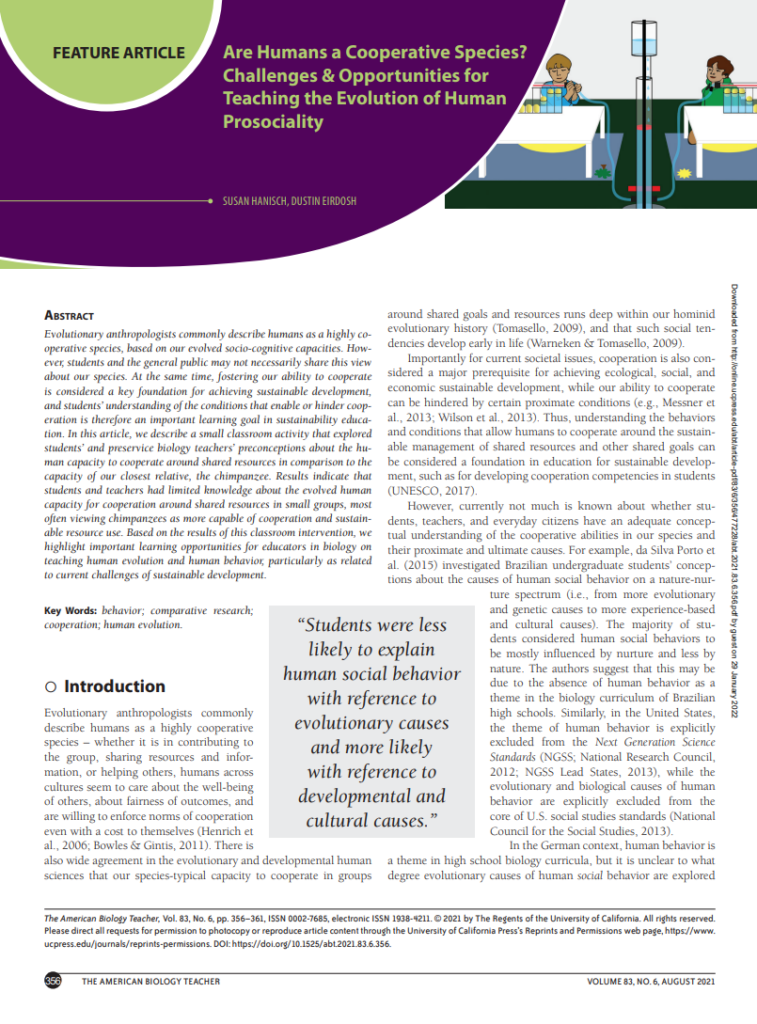LiteratureBase
Are humans a cooperative species? Challenges and opportunities for teaching the evolution of human prosociality.
Hanisch, S. & Eirdosh, D. (2021). Are humans a cooperative species? Challenges and opportunities for teaching the evolution of human prosociality. The American Biology Teacher, 83 (6). https://doi.org/10.1525/abt.2021.83.6.356
Abstract
- Evolutionary anthropologists commonly describe humans as a highly cooperative species, based on our evolved socio-cognitive capacities. However, students and the general public may not necessarily share this view about our species. At the same time, fostering our ability to cooperate is considered a key foundation for achieving sustainable development, and students’ understanding of the conditions that enable or hinder cooperation is therefore an important learning goal in sustainability education. In this article, we describe a small classroom activity that explored students’ and preservice biology teachers’ preconceptions about the human capacity to cooperate around shared resources in comparison to the capacity of our closest relative, the chimpanzee. Results indicate that students and teachers had limited knowledge about the evolved human capacity for cooperation around shared resources in small groups, most often viewing chimpanzees as more capable of cooperation and sustainable resource use. Based on the results of this classroom intervention, we highlight important learning opportunities for educators in biology on teaching human evolution and human behavior, particularly as related to current challenges of sustainable development.
- Publication Type OpenEvo Publication
- Concepts Kooperation, Soziales Dilemma
- Relevant subject areas Biologie, BNE
- Relevant research methods Schülervorstellungen
- Relevant projects OpenEvo


